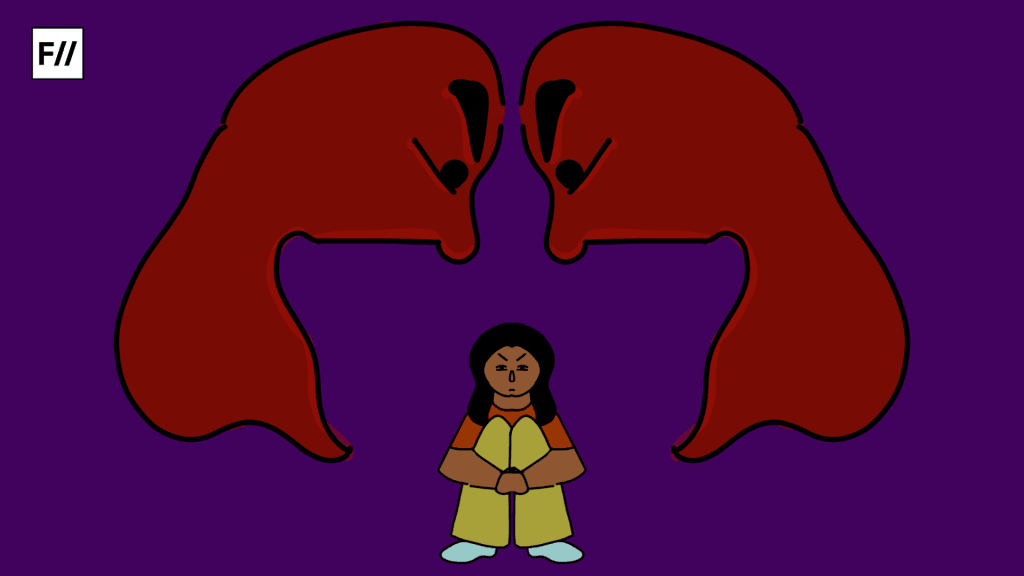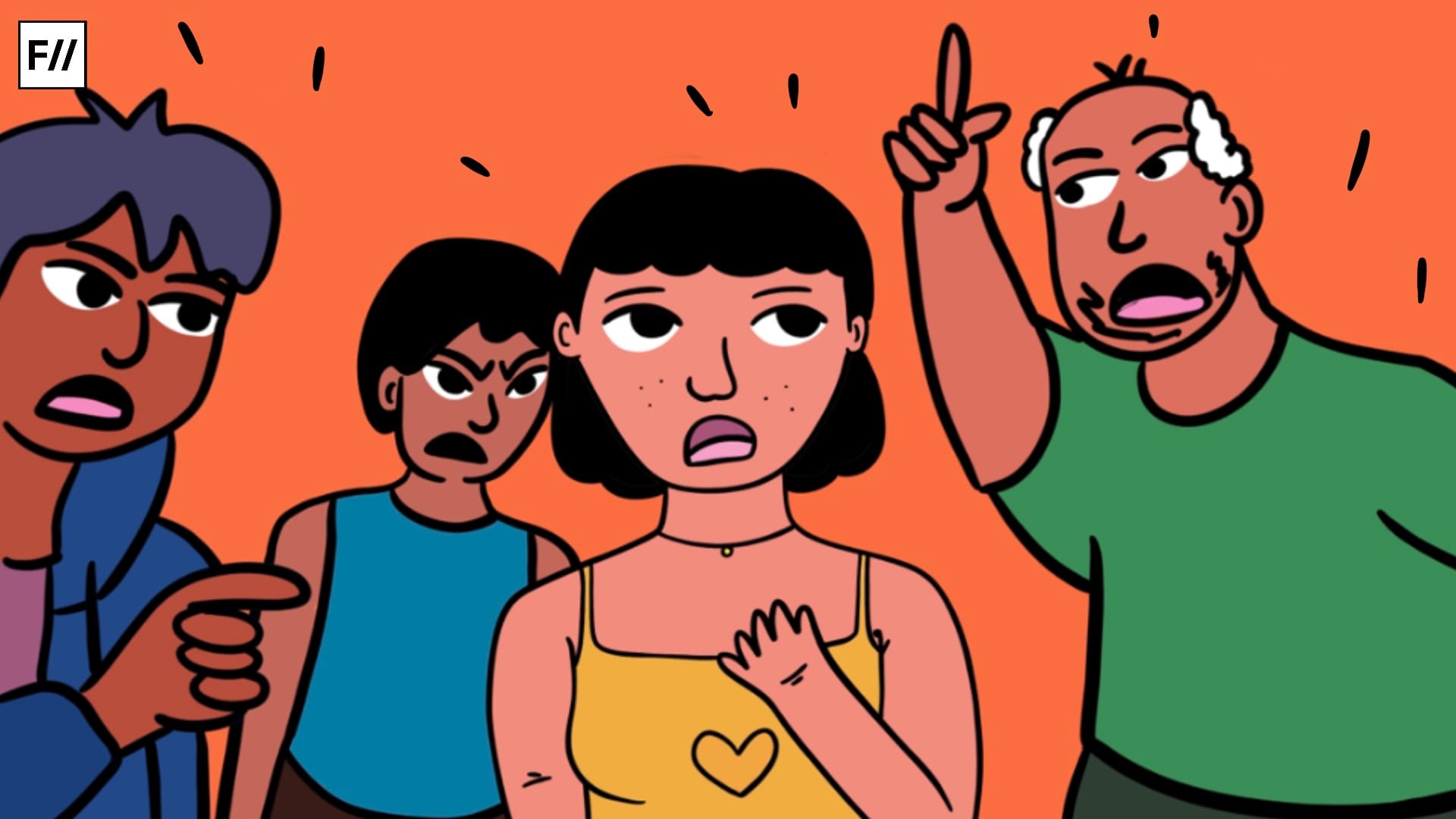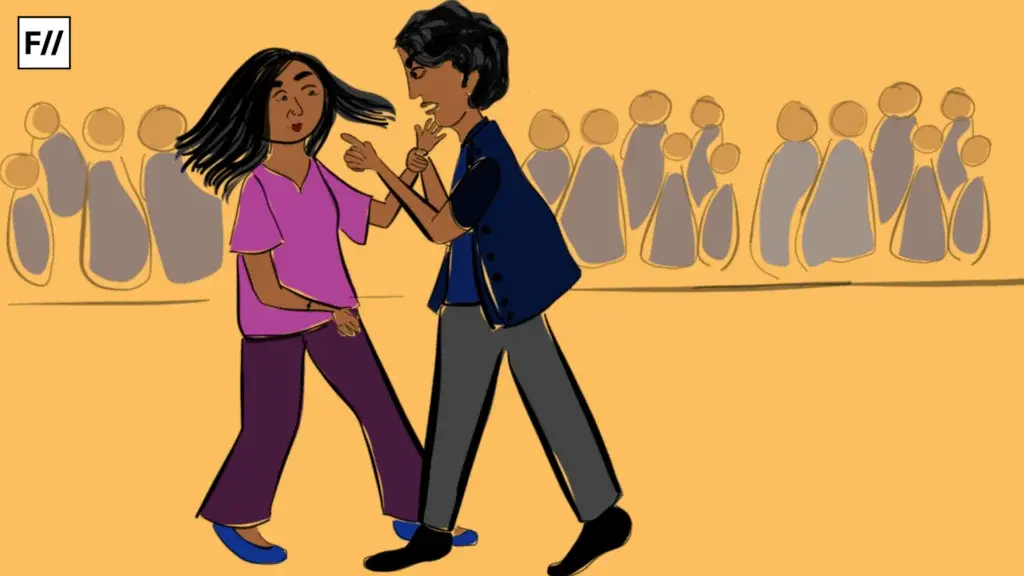India’s online platforms like Telegram and Reddit are turning out to be the hotbeds of misogyny as minimal moderation gives rise to increased violence against women
One evening, sixteen-year-old Anaya Malik* was unexpectedly added to a random Telegram group. Before she could exit, a message popped up from a man claiming to be a 25-year-old teacher. His initial greeting was polite, but the tone quickly shifted as he asked for her photograph. Her denial led to a stream of abuses hailed directly towards her figure. Group members casually shared photos of women they claimed were family or friends, treating them as commodities. With the rise in internet users, internet and digital spaces have taken an ugly side. Platforms like Telegram and Reddit claim their anonymity as their best features, which, rather than having advantages, have provided breeding grounds for harassment, hate speech, and even the sharing of explicit and non-consensual content.
A recent study published in the PLOS One journal identified six overlapping forms of online misogyny: sexist abuses, sexual objectification, threats of harm, asserting women’s inferiority, justifying violence, and dismissing feminist efforts. These forms demean women’s dignity in digital spaces as sexist abuses amplify stereotypes and gender roles, while sexual objectification reduces women to objects of desire, often shaming them for their choices. The study reveals a rise in misogynistic tweets during the COVID-19 pandemic, with around 2 percent of tweets from India containing misogynistic content between 2018 and 2021.
Encrypted messaging apps like Telegram and Instagram offer legitimate benefits; they also provide anonymity and the rights of free speech, which often help online predators. Telegram has been subject to controversies recently when its CEO, Pavel Durov, was accused of allowing child pornography to persist on its application. “I was added to a group with more than 12,000 users which sold incest and rape pornography videos for a price of fifty rupees,” said Malik, emphasising the fact that exchange of pornographic content is still persistent on the platform. Platforms have often failed to moderate the content effectively, which allows such groups to exist.
A prime example of this is the 2020 BoisLocker Room case, where a private Instagram group was exposed for sharing explicit content and making misogynistic remarks about young girls. The group consisted primarily of male teenagers and was able to operate freely. The nature of online misogyny and hate continues to form gaps and raise doubts over women’s participation in India’s digital landscape. The National Family Health Survey (2019-21) indicates that only 33 percent of women use the internet compared to 57 percent of men.
Pornography is distributed via encrypted messaging platforms like Telegram and Whatsapp, fuelling digital misogyny. These platforms offer minimal content moderation. This unrestricted access normalises objectification of women, causing reduction to sexual objects that normalise stereotypes. The normalisation leads to a culture where women’s consent is frequently disregarded.
Several cases in the past show that women were targeted in the name of religion and were posted on Twitter as ‘Deals of the Day.’ After this, both GitHub and Twitter were criticised for having failed to moderate their content. The accused was later arrested by Delhi Police in early 2022.
Dark side of digital exposure
In 2023, online predators continue to pose a significant threat to women, with a staggering 500,000 predators targeting the young users daily, as cited by the Online Predator Statistics. The report concludes that only 15 percent of parents are fully aware of their children’s online activities, leaving the majority at risk. The primary goal of the predators is disturbingly clear: to solicit explicit images. Additionally, 82 percent of online predators are male.

A recent survey by Common Sense Media, a non-profit organisation, revealed that over half of teenagers are exposed to pornography by the age of 13. In the survey titled “Teens and Pornography“, participants aged 13 to 17 highlighted that a significant portion of teenagers who admitted to viewing pornography reported exposure to ‘aggressive and violent pornography‘ and stated they had seen pornography depicting acts of rape, choking, or scenarios where someone appeared to be in pain. This exposure normalises violent behaviour and changes societal norms.
On platforms like Reddit, users can engage in behaviours of misogyny without fear of immediate consequences, which fuels them to act in ways they might not act in person. A 2019 study by the American Psychological Association found that exposure to pornography is also linked with increased aggression towards women, which reinforces the belief that women are objects to be controlled or dominated. This has been particularly evident in India, where platforms like Telegram host groups where women are reduced to targets for exploitation.
Subreddits like /Completeevil and r/celebbodies are among the thousands of communities on Reddit that fuel hate, misogyny, and objectification. Additionally, Reddit’s search functionality enhances the issue. “Even when searching for innocuous terms within the app, search results often prioritise NSFW (Not Safe for Work) communities, which can be both unsettling and potentially triggering for users despite being labelled NSFW,” said Malik.
Legal protections
India’s cyber laws provide legal provisions to address online abuse and harassment. The legal provisions include the Criminal Amendment Act of 2013 and the Information Technology Act of 2008. The Criminal Amendment Act of 2013 talks about offences like demanding sexual favours or showing pornography against someone’s will as cited in Section 354A, voyeurism and distribution of such material without consent as cited in Section 354C and cyberstalking (Section 354D)

The Information Technology Act targets cyber crimes like identity theft (Section 66C); privacy violations (Section 66E), and the publication or transmission of obscene content (Sections 67 and 67A), including child pornography, which has been prevalent on online sites like Telegram (Section 67B).
On 11th August 2023, the Digital Personal Data Protection Act, 2023 (DPDP Act) was announced, and this marks an advancement in India’s legal framework for data privacy. The Act mandates that consent must be obtained before processing personal data. Penalties for non-compliance can reach up to INR 250 crore for serious breaches.
How is protection done?
Existing laws like the Criminal Amendment Act of 2013 and the Information Technology Act provide a foundation, but they must be updated to address emerging threats such as deepfakes and abuse on gaming platforms.
Social media platforms must take greater responsibility by implementing stricter guidelines to detect and remove harmful content before it spreads. The Manipur Violence video was immediately taken down by Twitter soon after massive digital protests were held. While platforms like Twitter and YouTube have increased moderation, Telegram and Reddit need to follow as well.
Women can be empowered through digital literacy platforms like Cyber Saathi, which is essential to helping them understand their rights, report abuse, and protect their privacy, especially in rural areas where awareness is limited.
Given the borderless nature of the internet, international cooperation is critical to combating cyber harassment through unified strategies. Equally important is addressing the psychological toll of online abuse. Integrating mental health support systems can provide victims with the resources they need to recover. Most NGOs have to come up with fresh amendments in their policies to tackle the ongoing trend of digital misogyny, as most of them don’t work to tackle online harassment.
Certain subreddits like r/BanFemaleHateSubs have been created that report and ban violent and misogynistic subreddits which can be used by redditors to take immediate actions. Misogynistic subreddits are directly responsible for rape and abuse of women and girls in real life.
* Name changed as per person’s request to protect their identity.




